Create meal plans in seconds using AI
Do you want to create personalized and flexible meal plans for your clients but also save a lot of time and energy?
Use Nutritio’s automatic meal planning software for nutrition professionals (dietitians, nutritionists, nutrition coaches, fitness trainers) and save hours every day.
Generate meal plans using AI (artificial intelligence).
Get back your time and scale the number of clients you can work with.
Free meal planning software plan available.
Automated meal plans generator / meal planner
Do you spend a lot of time with boring calculations to create meal plans?
We reduce the time required to create a meal plan from a few hours to one second with our revolutionary automated meal plans generator. We can even make it work with your meal plans.
NutritIO’s automated AI powered meal plans generator will outsmart your time management and client growth goals in no time.

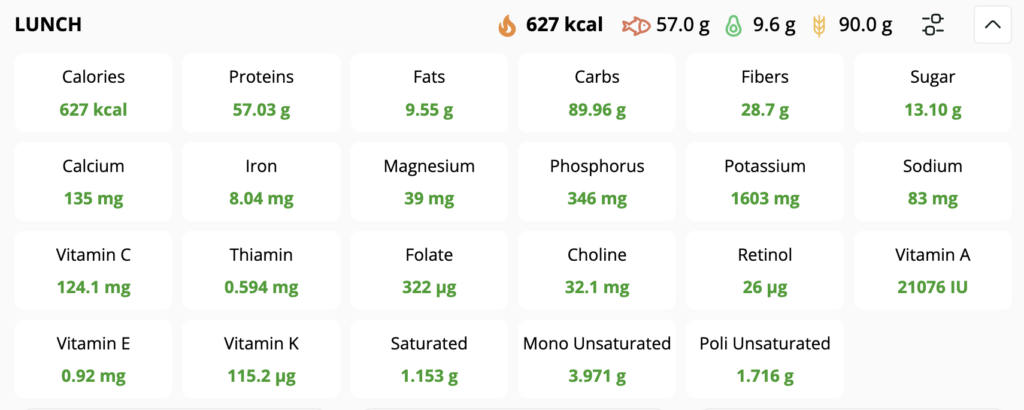
Personalized meal plans, at your fingertips
Designing personalized plans for your patients has never been easier. You can create daily meal plans and adjust them in real time based on your patients’ needs.
Nutritio will calculate all the totals for you (macronutrients and micronutrients) for every meal and for the entire day.
Flexible meal plans
Do your clients want flexible nutrition programs?
Create flexible meal plans where you can add alternatives to every food or recipe or allow your clients to switch any meal with a similar one using our simple to use meal planning software.
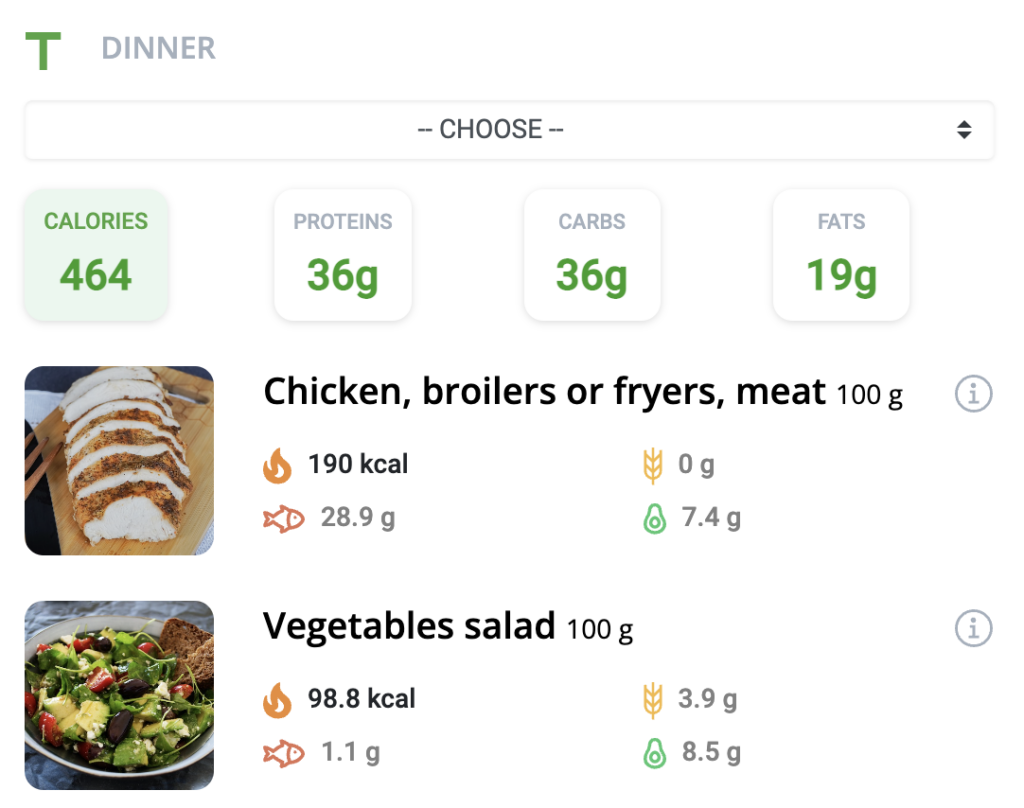
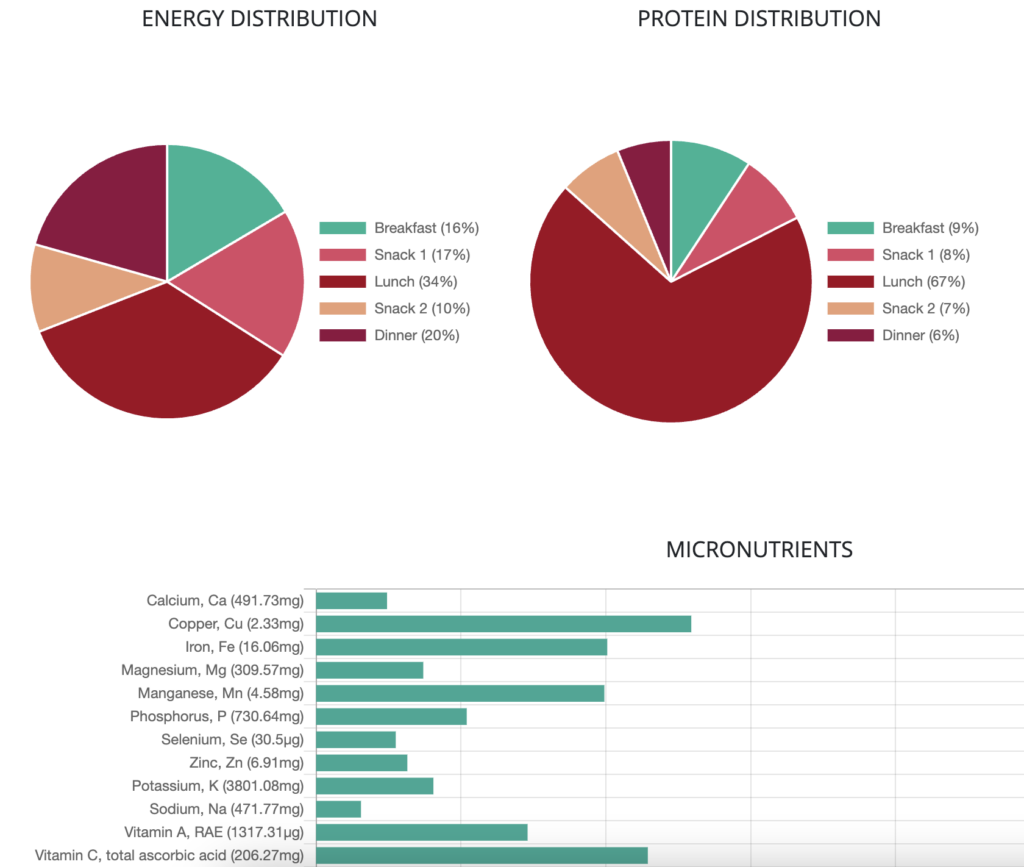
Analyze your meal plans with a free* meal planning software
Run a comprehensive analysis of your meal plan or your client’s food journal with our nutrition analysis software.
- breakdowns of macronutrients and micronutrients
- macronutrients, fats and carbohydrates distribution
- energy and protein distribution per meals
- micronutrient totals and percentages in relation to the recommended daily allowance
- macronutrients distribution per meals
Whitelabel meal plans generator
Do you want to sell meal plans on autopilot?
Integrate a whitelabel meal plans generator in your website and start selling meal plans today generaterd by our whitelabel AI meal planning software.
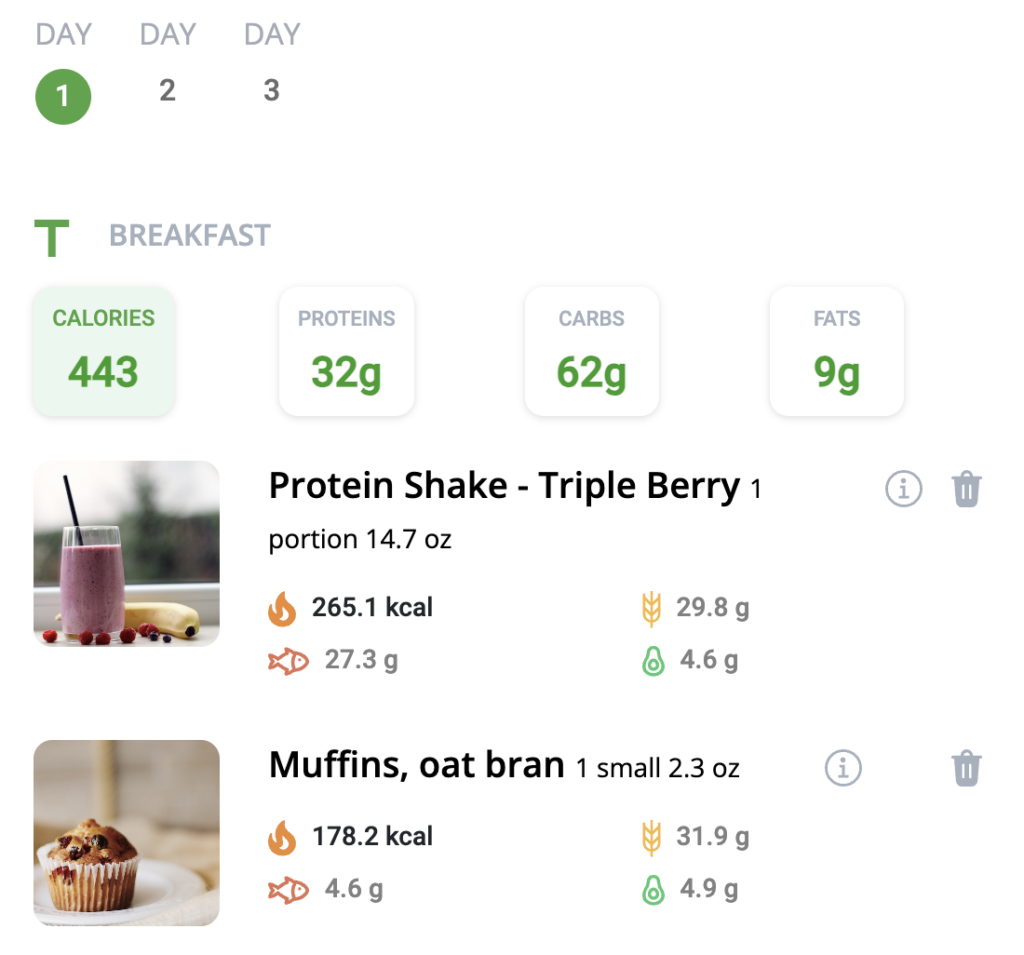
Share securely
Share your meal plans with your clients via your personalized web and mobile app, save them as PDFs or just print them.
Extensive food database
Access an extensive database of more than 80,000 food items, each containing about 100 nutrients. We are constantly adding new foods to the list and you can even add your own.
Use your recipes. Or not.
You can search our database of foods or use your own recipes in the meal plans. The choice is yours.
10 ways to get more clients as a nutrition professional in 2023
NutritIO has radically simplified my nutritional coaching activity. I can access the patients database from anywhere in the world, I can do nutrition analysis and meal planning easily. I can interact with my patients very easily and in a modern way.
Loredana Lapusanschi
Registered Dietitian

What is a meal planning software
A meal planning software is an app (mobile, web or desktop) that helps a person to create a meal plan.
It provides nutritional information about the food that are included in the plan. Usually it calculates nutrient totals like the total number of calories, total quantity of proteins, carbs, lipids and so on.
The meal planning software that are focused on dietetics also include micro-nutrient totals (vitamins, minerals and so on).
In terms of user types we can split them in two categories: meal planning software for professionals (dietitians, nutritionists, fitness trainers, medical doctors, health coaches) and for individuals.
Meal planning software for professionals: dietitians, nutritionists, fitness trainers, nutrition coaches
About two years ago I was talking to a friend (a doctor) who is doing dietetics extensively. I asked her what does she use for meal planning for her patients.
The answer was: pen and paper. I thought it was a joke but it wasn’t.
We did some research and discovered that the options are limited and we believed we could build a much better one.
We believe that every dietitian and nutritionist, fitness trainer with nutrition training and nutrition coach needs to use a meal planning and nutrition software for very simple reasons.
- spend time with and for their clients/patients instead of repetitive tasks that can be automated by a computer
- cut the calculations (like BMI, Harris–Benedict equations, totals of calories, macro and micro nutrients)
- communicate efficiently with their clients/patients (encourage them to communicate but have control over the time and way of communication)
- share the information (like nutritional plans, diet information, fitness plans, nutritional profile) with the clients/patients in a modern way instead of communicating the information in many formats and communication channels
- collect results and feedback from patients
- there are a lot of benefits for clinical nutrition which requires more detailed calculations which are outlined in this article
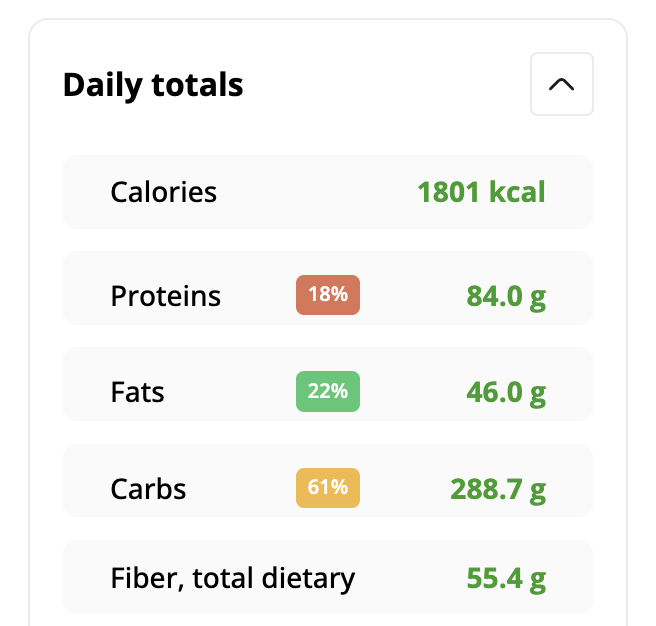
There is a big difference between an app for nutrition professionals and one for individuals. First of all, the professionals need superpowers. There is much more than just doing calorie counter and keeping a diet journal.
We see a software for professionals as a complete suite of multiple software: EMR (Electronic Medical Records), CRM (Customer Relationship Manager), meal planning software, communication interface and much more.
Nutrition planning software for individuals
There are a lot of nutrition apps for individuals. Most of them are just calorie counters and diet journalling tools.
Which is great! We strongly believe that chance starts at the individual level.
We strongly encourage people to use tools like these. Track your calorie consumption, macro-nutrient and micro-nutrient consumption! But keep in mind that a dietitian or nutritionist is a trained person who spent a lot of time in school, has absorbed much more from scientific books and studies than you can ever find on the internet and knows the relations between nutrition and diseases.
This kind of work requires dedicated software specialized to their needs.
How to choose a menu planning software as a nutritionist, dietitian, fitness trainer or nutrition coach
If you are a dietitian or nutritionist, fitness trainer or nutrition coach and you are wondering what you should take into account when deciding which meal planning software to choose, we have identified the “must to have” and “nice to have” options for you.
Must have for a meal planner:
- food composition database – for every food in the database you must have the nutritional values like calories, macro-nutrients, micro-nutrients
- automated calculations – invest your time wisely in patient motivation and communication instead of manual calculations
- patients management
- recipe builder
- great support – usually the startups have much better support and adapts better to your needs than big corporations
- data privacy – you don’t want your data to be sold or used for any purposes (can you defend in front of the Congress like Mark did?)
- security – the data you enter in a software is yours. Period. The owners of the software are responsible for the security of your data
- user friendly – “A user interface is like a joke. If you have to explain it, it’s not that good.”
Nice to have:
- communication tools – you might create the best diets ever but if you don’t communicate with your patients, collect feedback, adjust the diets and motivate them the diets will be just nice meals on paper
- support for clinics – the work of a nutrition clinic needs extra tools and features compared with a individual dietitian
- support for clinical nutrition
- appointment system
- support for remote practice – the borders tend to disappear even in the medical world. Choose a tool that can empower you to work with patients from everywhere in the world. Options like integrating your online payments system can make a difference in your work.
- templates – nutritional plans, information to share with your patients – everything that is predefined or can be predefined in order to be reused will save you a lot of time.
Start using for free the automated meal planning software for nutritionists, dietitians, fitness trainers and nutrition coaches!
* the free plan has some limitations.